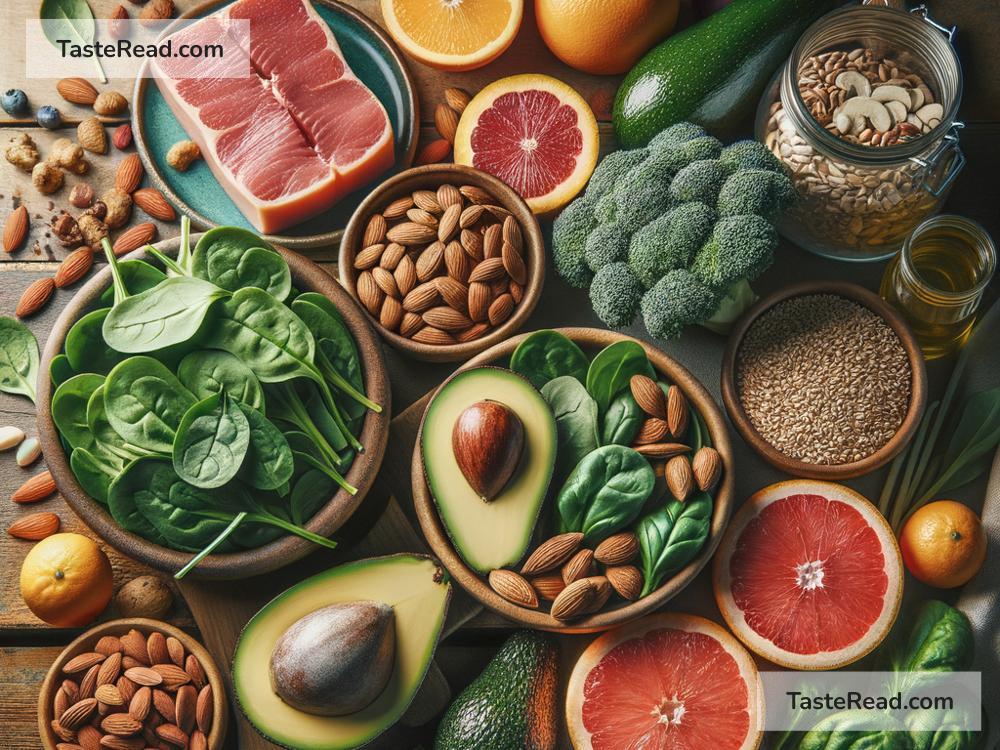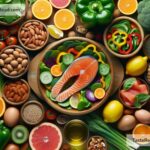Foods That Support Your Diaphragm Function: A Simple Guide
Your diaphragm is an important muscle that helps you breathe—it’s like the engine behind your lungs! But did you know that your diet can play a big role in keeping it strong and healthy? When your diaphragm is working well, you’ll breathe easier, feel more energized, and may even reduce your risk of respiratory problems. In this blog, we’ll explore how certain foods can support diaphragm function, and we’ll keep it simple and easy to understand!
Why Is the Diaphragm Important?
The diaphragm is a dome-shaped muscle located below your lungs and above your stomach. Every time you breathe, the diaphragm contracts (tightens), pulling air into your lungs. When you exhale, it relaxes and pushes air out. This process happens without you even thinking about it! The diaphragm also plays a role in sneezing, coughing, and talking.
A strong and healthy diaphragm makes breathing more efficient and reduces strain on your body. However, if the diaphragm isn’t functioning well—for example, due to poor posture, chronic illness, or weakness—you might experience shortness of breath or fatigue.
What Does Food Have To Do With the Diaphragm?
Like any muscle in your body, the diaphragm needs proper nutrition to stay strong and perform well. Feeding your body with nutrient-rich foods can:
- Help reduce inflammation that might weaken the diaphragm.
- Provide energy and build muscle strength.
- Improve lung health, since the diaphragm works closely with your lungs.
Let’s look at some great foods that promote diaphragm function and overall respiratory health.
1. Foods Rich in Magnesium
Magnesium is a mineral that helps your muscles contract and relax properly. Since your diaphragm is a muscle, magnesium-rich foods are perfect for supporting it. If your body doesn’t have enough magnesium, your muscles, including your diaphragm, can feel tired or cramp up.
Great magnesium-rich foods include:
– Leafy greens like spinach and kale
– Nuts and seeds like almonds, cashews, and pumpkin seeds
– Whole grains like quinoa and oats
– Avocados
Snack on these foods or add them to your meals to give your diaphragm the support it needs!
2. Anti-Inflammatory Foods
Inflammation in the body can limit how well your diaphragm works. Eating foods that fight inflammation can ease breathing and improve diaphragm health. These foods are high in antioxidants, vitamins, and healthy fats.
Top anti-inflammatory foods include:
– Fruits like berries, oranges, and cherries
– Vegetables like broccoli, cauliflower, and sweet potatoes
– Fatty fish like salmon, mackerel, and sardines (they’re rich in omega-3 fatty acids)
– Olive oil
These foods keep your diaphragm strong and also boost the health of your lungs and overall respiratory system.
3. Protein for Muscle Support
Muscles need protein to grow and stay strong, and the diaphragm is no exception! Eating enough protein helps your diaphragm repair itself and stay in good shape. You don’t need to overdo it—just focus on healthy protein sources.
Good protein options include:
– Lean meats like chicken or turkey
– Eggs
– Beans and lentils
– Dairy products like yogurt and cheese
– Tofu and tempeh
Adding these to your meals can ensure your diaphragm stays strong for smooth breathing.
4. Hydrating Foods and Drinks
Staying hydrated is key for diaphragm function. If you’re dehydrated, your muscles, including the diaphragm, might not work as well. Drinking plenty of water is a must, but you can also eat foods with high water content.
Examples of hydrating foods include:
– Cucumber
– Watermelon
– Oranges
– Celery
Combine these with regular water intake for optimal hydration and healthy diaphragm function!
5. Foods Rich in Vitamin C
Vitamin C is not just for your immune system—it’s also great for respiratory health. It protects your lungs and diaphragm from damage caused by toxins or pollution. Plus, vitamin C can help reduce inflammation and keep the diaphragm functioning smoothly.
Find vitamin C in:
– Citrus fruits like oranges, lemons, and limes
– Bell peppers
– Strawberries
– Kiwi
– Tomatoes
Snack on fruits, add them to smoothies, or use veggies like bell peppers in your cooking!
6. Potassium for Muscle Relaxation
Potassium helps balance fluids in your body and supports muscle relaxation after a contraction. Eating potassium-rich foods can prevent cramps in your diaphragm and help it work efficiently while you’re breathing.
Foods high in potassium:
– Bananas
– Potatoes (with the skin)
– Beans
– Spinach
– Mushrooms
Adding these foods to your diet can ensure your diaphragm stays relaxed and ready to work hard.
7. Foods Supporting Gut Health
Believe it or not, your gut health can affect your diaphragm! The diaphragm sits right near your stomach, so bloating or indigestion can put pressure on it and make breathing harder. Eating gut-friendly foods improves digestion and reduces strain on the diaphragm.
These foods include:
– Yogurt with probiotics
– Fermented foods like sauerkraut and kimchi
– Fiber-rich foods like whole grains, fruits, and veggies
By taking care of your gut, you’ll also be helping your diaphragm stay comfortable.
Wrap-Up
Your diaphragm does so much for you—it helps you breathe, talk, and stay active. Supporting its function with the right foods can make a big difference in how you feel every day. By eating a variety of magnesium-rich, anti-inflammatory, hydrating, protein-packed, and vitamin-rich foods, you can keep this important muscle working at its best.
Remember, healthy eating supports not just your diaphragm but your lungs, muscles, and overall body! Pair your nutritious diet with good posture, regular exercise, and deep breathing practices to give this amazing muscle the care it deserves.
So, next time you plan your meals, think about your diaphragm—it’s another reason to eat healthy and breathe easy!


